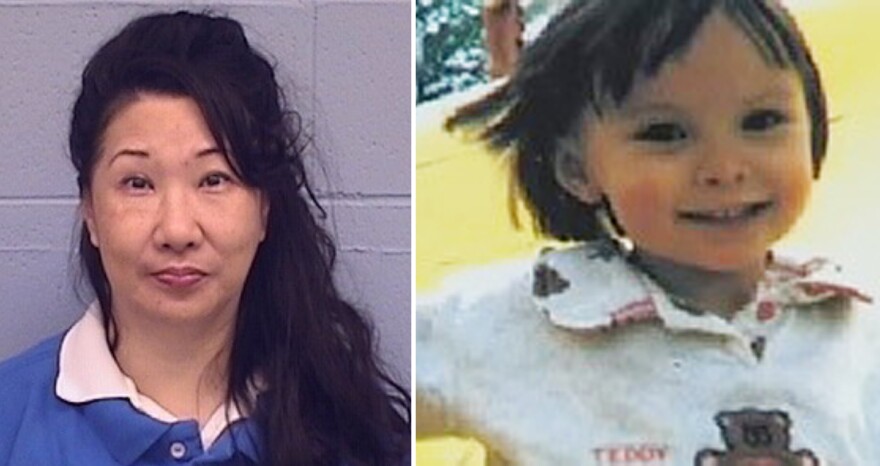GLT is partnering with true crime podcast Suspect Convictions to explore the 1998 murder of 3-year-old Bloomington girl Christina McNeil.
Her father was convicted of the crime but has long maintained his innocence, claiming an ex-girlfriend was the real killer—the same woman later convicted in a separate murder. New episodes air Fridays on GLT’s Sound Ideas. You can also subscribe to the podcast.
A man who claims he was wrongly convicted of killing his own daughter says new testing proves his homicidal ex-girlfriend’s DNA was all over the crime scene.
That’s a slam dunk for exoneration, right? Not so fast.
Episode 9 of Suspect Convictions digs into the DNA evidence in the Barton McNeil murder case. He was convicted of the 1998 smothering death of his 3-year-old daughter, Christina. Now in prison, McNeil argues that it was his ex-girlfriend, Misook (Nowlin) Wang, who was the real killer. (Thirteen years after McNeil’s conviction, Misook herself was convicted in a separate Twin City murder.)
"That should be a huge red flag for the state."
Lawyers with the Illinois Innocence Project are expected to file motions soon in hopes of winning McNeil a new trial and, ultimately, his freedom. They say advances in forensic science—especially Touch DNA, a relatively new method using very small samples—will prove that Misook was with Christina in her bed the night she was killed, hours after Misook and McNeil broke up.
DNA wasn’t used in McNeil’s bench-trial conviction.
“Our results indicate Misook was all over the bedsheets, the pillowcase, and her hairs were on the pillow where Christina was found dead,” said Gwen Jordan with the Illinois Innocence Project.
McNeil and Misook were in a sexual relationship, so prosecutors could argue that explains why her DNA would be found in the bed. Christina was sleeping at her father’s house that night.
“It’s certainly reasonable that Misook’s DNA would still be in the residence,” said Mary Koll, an assistant state's attorney in McLean County who's studied the case.
McNeil claims that he had the bedsheets laundered earlier that day, and that he has a receipt to prove it. A police lab technician also observed after the murder that the sheets smelled clean.
Koll counters that McNeil’s receipt is not itemized, so it’s unclear what exactly was cleaned. She said it’s important to consider a common-sense explanation for why Misook’s DNA might be found in the bed—notably her romantic relationship with McNeil.
“If it’s going to be phrased as if that hair or the mixtures stain (on the bed) is a smoking gun, then we can’t have a reasonable dialogue, because that’s simply not the case,” Koll said.
Prosecutors likely fear a new trial because of Misook’s subsequent conviction in her mother-in-law’s 2011 murder in Bloomington, said Vanessa Potkin, director of post-conviction litigation at the national Innocence Project, which is not involved in McNeil’s case.
Misook is now serving her prison sentence in Logan Correctional Center in Lincoln. She’s never been charged in the McNeil case, and Suspect Convictions has been unable to reach her for comment.
“That (DNA question) should be a huge red flag for the state,” Potkin said. “Instead of doing mental gymnastics to come up with reasons why the laundering couldn’t have been washed, or there could’ve been some contamination or mixture, take a step back and say, is this reasonable? Why is this person’s DNA on the sheet next to this young child who was smothered?”
Listen to Episode 9:
Next Week’s Episode: Roundtable discussion featuring Illinois Wesleyan University social psychologist and true-crime buff Amanda Vicary, and podcaster Kari Martin with White Wine True Crime.
WGLT depends on financial support from users to bring you stories and interviews like this one. As someone who values experienced, knowledgeable, and award-winning journalists covering meaningful stories in central Illinois, please consider making a contribution.



